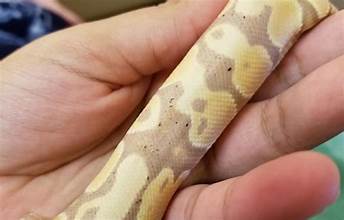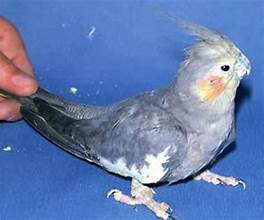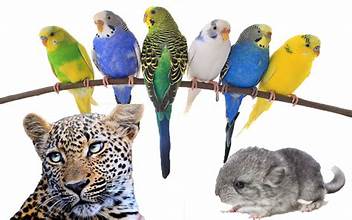Exotic pets, including reptiles, birds, and small mammals, require specialized care to stay healthy. One of the most common threats to their well-being is parasites. Mites, worms, and bacterial infections can affect many exotic pets and, if left untreated, lead to severe health issues. We will explore how to prevent these parasites and keep your exotic pets healthy.
Understanding Common Parasites in Exotic Pets: A Key to Empowerment
Mites
Mites are tiny external parasites that can infest exotic pets’ skin, fur, or feathers. They are commonly found in reptiles, birds, and small mammals, causing itching, irritation, and even anemia in severe cases. Some common types include:
- Snake mites (Ophionyssus natricis):

Found in snakes and lizards, they cause skin irritation and lethargy.
- Feather mites:
It affects birds, leading to feather damage and excessive preening.
- Fur mites:
Infest rabbits and rodents cause hair loss and skin inflammation.
Worms
Internal parasites like worms can infect the digestive system, leading to weight loss, diarrhea, and lethargy. Common types include:
- Roundworms:
Common in reptiles and small mammals.
- Tapeworms:
It is found in many exotic pets and is often transmitted through contaminated food.
- Hookworms:
Affecting reptiles and mammals, these parasites feed on blood, leading to anemia.
Bacterial Infections

While not technically parasites, bacterial infections can act similarly by weakening your pet’s immune system. Bacteria like Salmonella, Pseudomonas, and Mycoplasma can cause severe illness if left unchecked.
Preventative Measures for Exotic Pets
1. Maintain Proper Hygiene
Good hygiene is the first line of defense against parasites. Regularly clean and disinfect your pet’s habitat, food and water dishes, and any accessories they use. This minimizes the chances of parasites thriving in their environment.
2. Quarantine New Pets
When introducing a new exotic pet to your home, please keep them in quarantine for at least 30 days. This helps you monitor for any signs of mites, worms, or bacterial infections before they can spread to other animals.
3. Regular Vet Checkups: Your Proactive Shield Against Parasites
Routine veterinary visits are essential for early detection of parasites. Exotic pets should undergo fecal exams to check for worms and skin exams to detect mites or bacterial infections.
4. Proper Diet and Nutrition: Your Pet’s Shield Against Parasites
A well-balanced diet strengthens the immune system, making it harder for parasites to take hold. Provide species-appropriate nutrition and avoid feeding live prey from questionable sources, as they may carry parasites.
5. Monitor and Control Humidity and Temperature
Many exotic pets thrive in specific humidity and temperature ranges. Incorrect conditions can weaken their immune systems, making them more susceptible to infections and parasites. Therefore, regularly monitoring and adjusting their habitat to meet their specific needs is essential.
6. Use Preventative Treatments
Some exotic pets may benefit from preventative anti-parasitic treatments prescribed by a veterinarian. These treatments can help to prevent parasites from taking hold in your pet, but it’s important to note that you should never use treatments for dogs or cats, as they may be toxic to exotic animals. Always consult a veterinarian before starting any preventative treatments.
7. Avoid Cross-Contamination
If you own multiple exotic pets, always wash your hands when handling different animals. This prevents the spread of potential parasites from one pet to another. Using separate cleaning tools for each pet’s enclosure can also help prevent the spread of parasites. This means having separate brushes, sponges, and other cleaning tools for each pet’s habitat to avoid cross-contamination.
Recognizing Signs of Parasitic Infections
Despite the best preventive measures, parasites can still occasionally appear. Watch out for the following signs:
- Mites:
Excessive scratching, flaky skin, visible tiny moving specks.
- Worms:
Sudden weight loss, bloated abdomen, changes in stool consistency.
- Bacterial Infections:
Lethargy, loss of appetite, nasal discharge, difficulty breathing.
If you notice any of these symptoms, seek veterinary care immediately. Early detection and treatment can prevent severe health complications.
Final Thoughts
Preventing parasites in exotic pets requires diligence, proper care, and regular veterinary checkups. Maintaining good hygiene, monitoring their habitat, and providing a nutritious diet can significantly reduce the risk of mites, worms, and bacterial infections. Always consult an exotic pet veterinarian for specific recommendations based on your pet’s species and needs. A proactive approach will ensure your exotic companion lives a long and healthy life.





Pingback: New Kind A Pet Instead Of Dogs & Cats: Exotic Pets - Positvley Pets